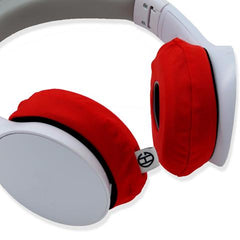Win in the Gym: How Exercising to Music Can Boost Your Performance

There’s no magic bullet when it comes to getting fitter or faster. The effort we put in at the gym reflects the results we see on the scales, on the clock and in our performances. If it was that easy, everyone would be doing it.
But what if exercise could boost your performance? Could the tempo of the song we’re listening to really give us the edge during an intense workout?
What’s the Effect of Music on Exercise Performance?
We’ve probably all turned up at the gym without our headphones or without enough battery to power us through a workout.
When you’re used to listening to music even a quick session can seem twice as long without it.
Whilst there are benefits to working out without music, it’s not for everyone. And it might not just be habit that makes us feel that way.
There is a relationship between music and exercise and it’s stronger than you think.
Music can have an effect on the mind and the body. It’s a distraction for one thing: you don’t notice how hard you’re working and therefore, you’re less likely to quit.
Distraction goes beyond the physical, too. Sometimes a workout can be boring or maybe it’s your internal monologue – the voice telling you to stop, telling you that you’re too tired, that there’s no point is too loud.
Music helps drown out our temptation to give in.
We know that music can be a mood enhancer, too, and that it helps us to keep exercising for longer because we feel good doing it.
Dr Costas Karageorghis from Brunel University has shown that music releases alpha-waves which can put a person into what he describes as an ‘in-flow’ state. This is when you’re enjoying your workout, when it doesn’t feel like hard work and when you know you’re not going to stop.
We already know that music helps us but does one type of music give us a greater advantage? Should we be downloading epic classical movie scores or is our love of quaint old English folk music enough to reap the benefits?
The Science of Workout Music
Tempo is the underlying beat in music.
The latest research from the University of Verona in Italy suggests that a higher tempo is key in boosting performance.
Researchers asked 19 females aged between 24 and 31 years old to complete two sets of exercises. One was an endurance activity: walking on a treadmill for 10 minutes. The other was a high intensity activity: using a leg press. Each exercise was carried out three times to different tempos of music: 90-110 beats per minute (bpm), 130-150 bpm, and 170-190 bpm.
Additionally, the women all worked out once without any music at all.
Each participants heartrate was taken during the exercise and it was noted as to how much effort each woman believed she was putting into the activity.
The study found that during the endurance activity there was a benefit to exercising at a higher tempo.
Although, the benefits weren’t so noticeable during the high-intensity activity. For runners, walkers, swimmers and cyclists, therefore, a higher tempo can improve performance. For bodybuilders, these results may not be so noticeable. Although, it’s likely that evidence of music as a distraction and as a mood enhancer still stands.
“In the current study, we investigated the effect of music tempo in exercise, but in the future, we would also like to study the effects of other music features such as genre, melody, or lyrics, on endurance and high-intensity exercise,”
One thing that’s interesting about this particular piece of research is how tempo has an impact on how well we exercise.
Music is universal; it’s something that exists in all cultures and in all languages. Because of that it can be difficult to pin why it’s so helpful when exercising. What’s the common denominator when the lyrics, the genre, the style, the interpretation, language, and rhythm etc are so varied?
If you’re wearing headphones during exercise, then we’d suggest adding sweat-resistant covers to the cushions to prevent excess moisture from damaging them.

If music is going to make you work harder, sweat heavier, then you don’t want your headphones paying the price.
What Type of Music Can Boost Exercise Performance?
According to the study by Verona University, it’s music with a tempo of more than 170 beats per minute that works best. Most streaming services have playlists searchable by BPM but here are a few songs to get you started: Paper Planes by MIA Lose Yourself by Eminem Never Named by Soundgarden.
- Motivation by Sum 41
- Never be Lonely by The Feeling
- The Painter by Paul Young
- Crawl by Kings of Leon
- Put on a Happy Face by Diana Ross and The Supremes
The Telegraph published an article on its website earlier this year which was interesting, suggesting that it’s not just tempo that can help us get more out of a workout. Researchers found that even just anticipating your favourite song was enough to release dopamine so if you’re exercising you’re potentially receiving a double-dose of the happiness hormone.
Tempo as a Performance Enhancer
This isn’t the first time that tempo has been found to be important in exercise. It’s always been seen as a good way of pace-setting for those doing cardio but this latest research goes further, suggesting that tempo could actually be what helps us perform better.
Researchers have even gone so far as to say that “music can be thought of as a type of legal performance-enhancing drug,"
Which is definitely worth bearing in mind next time you’re hitting the gym or track.
Ready to prep your headphones for exercise? Check out the EarHugz sweat-proof collection and pick your perfect pair.






